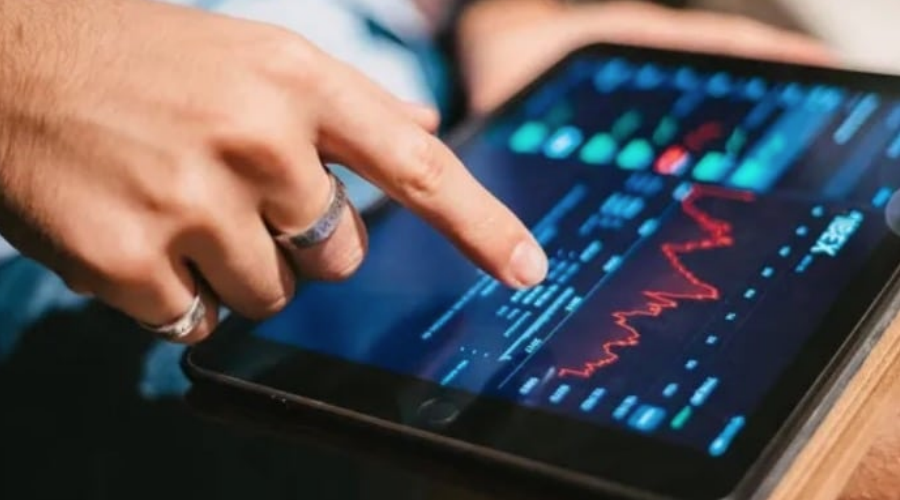The cryptocurrency market is growing rapidly, and newcomers have never had it so easy to enter the market. Signing up with one of the various crypto exchanges available online today and making your first crypto purchase is a simple process. But there’s more you’ll need to know before you can put your trust in these digital currencies with your own money. In this post, we will cover everything from the basics of cryptocurrency to advanced portfolio tracking and management. Ready?
At the outset, you need to know a few basics before you start investing. Perhaps the most crucial is developing a larger risk tolerance in preparation for these investments.
Bitcoin is the most well-known cryptocurrency, and its price movements are representative of the norm for crypto coins. Bitcoin’s value can fluctuate by 10% or more on a daily basis, making cryptocurrency investments in general a highly volatile asset class. For this reason, you should start by investing only a tiny amount in it. You can get used to the inevitable ups and downs in the value of your cryptocurrency this way.
Cryptocurrencies are not FDIC-insured like deposits in traditional banks. Since crypto trades are anonymous, you have little chance of recovering your funds in the event of an exchange shutdown, wallet hack (we’ll cover wallets later), or exchange bankruptcy.
You must pay taxes on your cryptocurrency profits. Cryptocurrency trading and investing profits are taxable as ordinary income and must be reported to the Internal Revenue Service.
You have considered the potential downsides and are acquainted with the crypto market’s dynamics, yet you still want to put your money there. Using a centralized exchange to purchase cryptocurrency is the safest option. These are commercial websites designed to make buying cryptocurrency hassle-free. Popular places to begin trading in cryptocurrencies include Coinbase, Crypto.com, and Gemini. Please be advised that the fees associated with using these exchanges can significantly reduce your earnings.
On most markets, you can buy cryptocurrency with your debit card, credit card, bank transfer, or wire transfer. A cryptocurrency wallet can be created to hold your cryptocurrency and be used to buy further cryptocurrency. To access coins that aren’t listed on centralized exchanges, users need a wallet that can communicate with decentralized markets. You should be aware that there is a chance your money will be lost if the venture turns out to be a fraud.
Where you buy cryptocurrencies is one factor, but your investment objectives and preferences should also be taken into account when deciding which digital currency to purchase. It is always best to undertake one’s own due diligence and select the cryptocurrency in which one has an interest or faith. Bitcoin, Ethereum, Dogecoin, and Binance Coin are just a few examples of the thousands of cryptocurrencies available, each with its own set of pros and cons.
You shouldn’t risk saving for your kid’s college or a down payment on a house by buying cryptocurrency. High-risk investments shouldn’t be seen as a strategy to get rich quickly but rather as a way to diversify your holdings. You should only invest in cryptocurrencies with money that you can afford to lose.
As was previously indicated, you must choose a cryptocurrency exchange to make your purchases. Depending on your answer, you may either buy coins online or at a local store. Again, first-time investors are better off using centralized platforms because they provide a safer way to buy cryptocurrency; however, doing so will cost you more in terms of the fees levied by these services. After that, register for an account with the market and confirm your identity. In order to comply with federal regulatory regulations, you will likely be unable to acquire or trade cryptocurrency before proving your identification.
The next step, before you can buy cryptocurrency, is to fund your exchange account with fiat currency. You can use a bank or wire transfer, a credit or debit card, depending on the platform. Sometimes it takes a few days for a payment to clear before you can make a purchase. Do not use a credit card to purchase cryptocurrency, as doing so may result in higher interest and fee charges from some banks.
You can start buying cryptocurrency after funding your account. After this is done, select a method to store your newly created digital currency. You can do the simplest thing and leave it in the exchange account, or you can move it to a hot or cold wallet.
Cold wallets are kept offline on a device like a USB drive, while hot wallets are kept online. There are advantages to both approaches; choose the one with which you feel most at ease.
Monitor your crypto holdings over time. There is no assurance that their value will rise. Adding your cryptocurrency holdings to a central investment dashboard, such as Personal Capital, is one simple method. Read the news and keep tabs on your coins so that you’re always aware of the state of the cryptocurrency market.
Cryptocurrency is not a “set it and forget it” investment; its value can fluctuate wildly from day to day depending on a number of factors. This is why it’s important to maintain a regular schedule of crypto education and portfolio monitoring.





